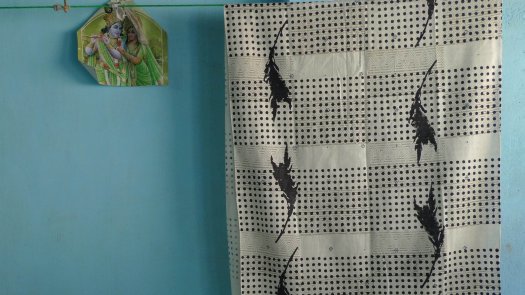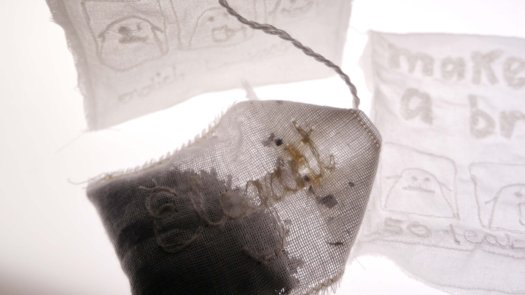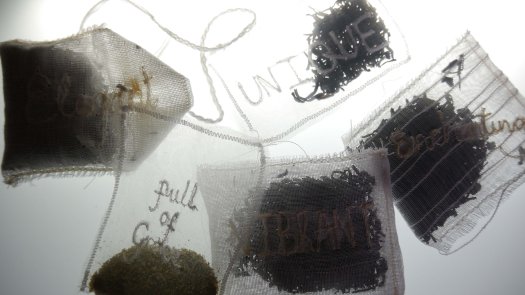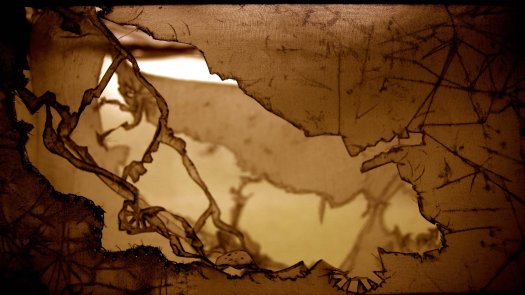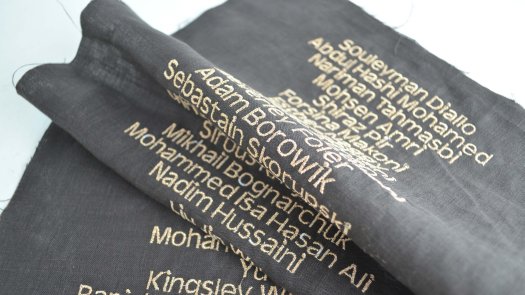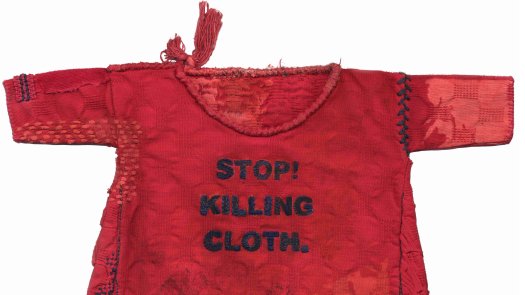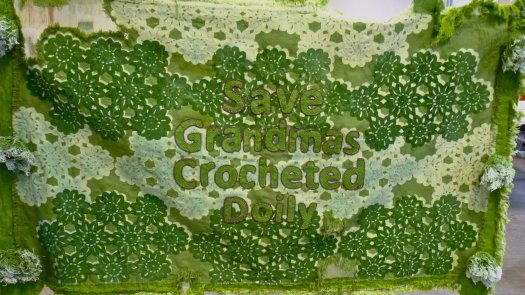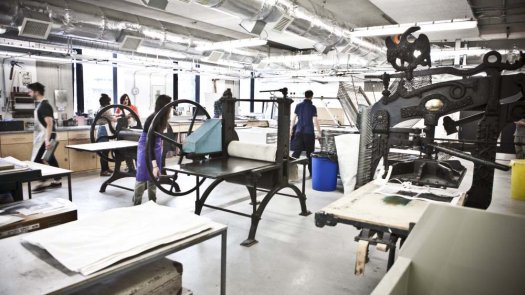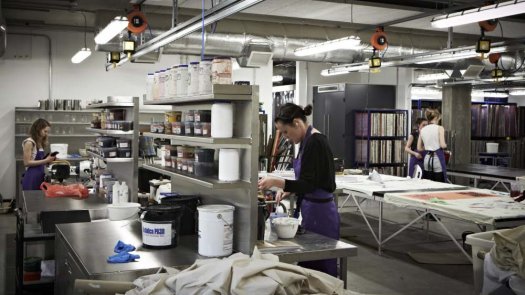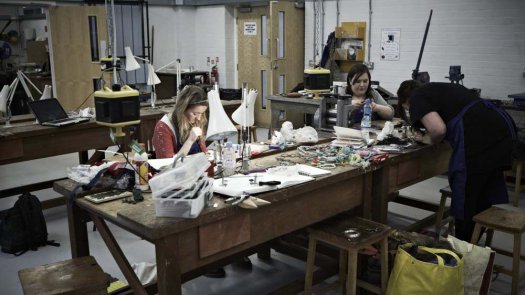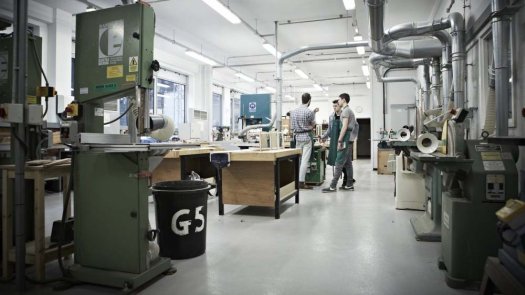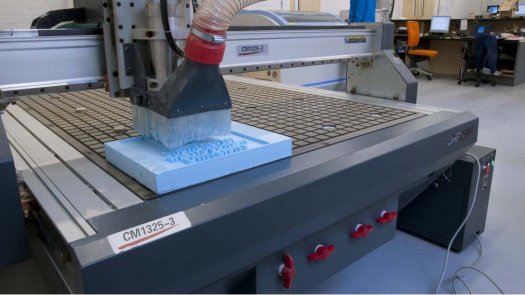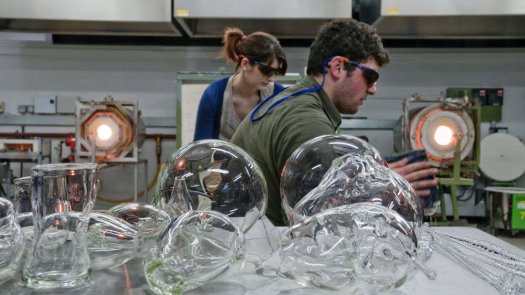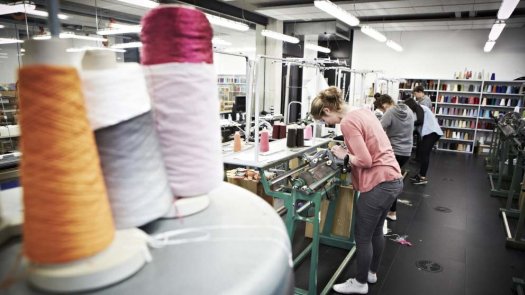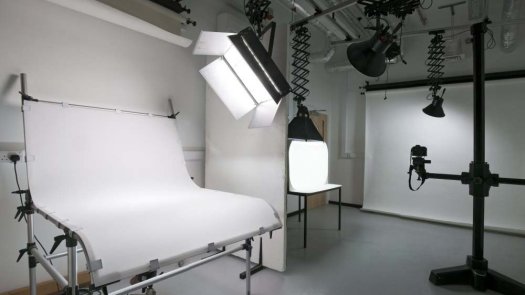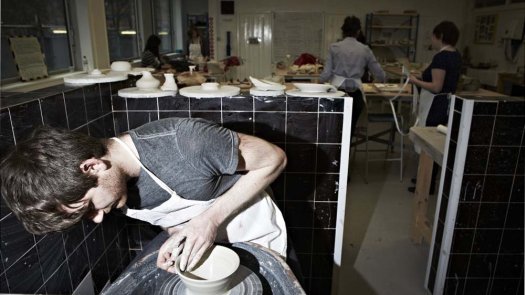Textiles
Textiles
MSc – 1 year (full-time) or 2 years (part-time)
This course reimagines the use, practice and industry of textiles for the 21st century. It responds to a global landscape that demands sustainable, respectful, imaginative, inclusive, and innovative approaches to anticipate and forecast our textile futures.
Manchester and the School of Art have been at the forefront of textiles innovation since the late 19th Century and this course is built on that rich heritage, offering students the opportunity to challenge and innovate in equal measure.
As a student, you will develop innovative study hubs of interdisciplinary expertise, which will both rethink and regenerate textiles within its expanded field, including Textile Craft, Innovation and Digital specialisms. You will address the future paradigms of environmental and social change, new materiality, and the development of 4.0 Textile Industry. Hybrid creative learning environments such as the Manchester Met Digital Lab and specialist textile facilities support advanced digital learning and making, electronics, 3D printing and multi-media material making practices to be explored.
You will develop individual specialised projects which will become beacons within the expanded field of design. Learning is creative, innovative and interdisciplinary and teaching features design workshops, guest lectures, design events, reading groups, live industry projects and study trips.
Features
- —While studying towards a particular qualification at MA/MSc level, students experience their subject in the broader context of contemporary design practice.
- —Dedicated spaces for the postgraduate community have been developed to enable the postgraduate community to flourish. Our textile studios and workshops support thinking, research and practice, and are at the heart of Manchester School of Art, allowing easy access to an extensive range of facilities where the combination of traditional and state of the art equipment opens up a world of exciting possibilities.
- —We have supported previous students with a wide range of specialisms including weave, knit, embroidery (digital, 3D printed and hand embroidery), and printed textiles (3D, screen print and digital print).
- —As a student of MA/MSc Textiles, you'll have access to wider facilities in the School of Art including a range of software and AV resources.
- —You will be taught by research active staff who are part of the Manchester School of Art Research Centre and experts in their field
- —The University library has outstanding Art and Design holdings, including a special collection of artist's books and ephemera.
Course Content
Year 1 (MA Full-Time)
The MA/MSc in Textiles is composed of five units, totalling 180 credits.
Researching, Mapping and Locating
30 credits
30 credits
30 credits
Art & Design: Culture & Context (MA:X)
30 credits
Design Thinking
This module introduces an applied understanding of how design can be used as an iterative process for creative problem solving. It will enable you to understand how to apply design thinking processes to your specialist area through understanding users, challenging assumptions, redefining problems and creating innovative solutions to prototype and test. The module will also provide a broad introduction to research methodologies, strategic research planning and research design. A range of design thinking tools will be introduced and explored before you undertake an in-depth project that provides opportunities for experimentation leading to innovative solutions.
Researching, Mapping and Locating
This module will enable you to gain an understanding of design practices, perspectives and contexts. You will establish a substantive individual position for personal practice within the expanded field of design. During the module you will work towards the production of a project proposal which will determine the ongoing research, mapping and locating of your position within contemporary design practice.
Colour, Material & Finish
This module will enable you to explore the language of material making, process and enquiry. Briefs will stimulate you to generate a range of practice-based responses to questions of context, concept, making, manufacturing, materiality, visual language and sustainability.
Synthesis Project: Textiles (MA)
The Synthesis final MA module will support you to develop, resolve and present a significant body of work, located within a defined area of Textile practice. The module accommodates opportunities for collaborative, industry based or international learning experiences, and enables you to undertake and submit work developed within professional placements and/or live projects.
The module synthesises specialist Textile design, making and innovation which you will have developed throughout the programme. The module accommodates the opportunity to present your work in progress and to engage in interdisciplinary critiques to test ideas, gain feedback and support the development of your final body of work.
The content of your practice is negotiated with specialist Textiles staff and you will manage your learning via the development of a Synthesis project proposal. The module features a flexible assessment submission process which combines written and practical elements, the weighting of which being responsive and appropriate to your individual future ambitions, be they professionally or academically focussed.
Synthesis Project Textiles (MSc)
This final MSc module will support you to develop and resolve a significant body of specialist Textile practice which is aligned to technical, market-led or digital contexts. Your learning journey will be synthesised by the presentation of an innovatively ambitious project, located within a defined area of technical, market orientated or advanced digital design practice.
The module accommodates opportunities for collaborative, industry based or international learning experiences and enables you to undertake and submit work developed within professional placements and/or live projects. The module features a presentation of your work in progress to test ideas, gain feedback and to engage in interdisciplinary critique to support the development of your final body of work.
The content of your practice is negotiated with specialist staff and you will manage your learning via the development of a Synthesis project proposal. The module features a flexible assessment submission process which combines written and practical elements, the weighting of which being responsive and appropriate to your individual future ambitions, be they professionally or academically focussed.
Art & Design: Culture & Context (MA:X)
This module offers focussed opportunity for students to extend and enhance their practice by including working in a wider design research community. The study of the cultural and critical contexts of design practice is vital to any student of the creative disciplines, this module will develop Master’s students’ abilities to contextualise their practice through a series of themes addressing contemporary issue in design.
Resources
We have developed a dedicated postgraduate area occupying an entire floor of the main School of Art building, offering an exciting space to be, both intellectually and practically. The centre is located in the Chatham Tower with studios, design laboratories, seminar rooms and extensive workshops that form the nucleus of this vibrant, cross-disciplinary learning environment.
Find out more about Manchester School of Art's facilities.
Student Work
Visit our online MA Show galleries to see examples of recent work by our postgraduate students.
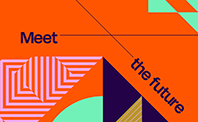

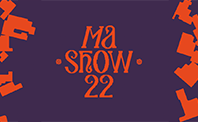
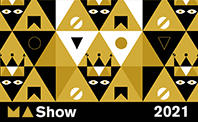
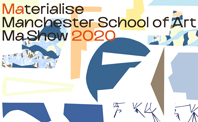

Graduates
We cultivate highly motivated, independent and creative thinkers who can transfer their skills into the creative marketplace, as entrepreneurial innovators, freelance practitioners and innovative team players. Past graduates predominantly achieve graduate-level positions or practise as sole traders, design studio artists, exhibiting artists, museum curators, archivists, researchers, academics, community practitioners, specialist technicians and filmmakers at national and international levels.
Making an Application
Entry Requirements
You will normally have a minimum 2:2 UK undergraduate honours degree (or equivalent) in a related subject and must submit a portfolio. We may request an interview as part of the application process, which can be in person or online.
Overseas applicants will require IELTS with an overall score of 6.5 and no less than 5.5 in any category, or an equivalent accepted English qualification.
How to Apply
Please apply online using the link below.
Fees 2025 Entry
UK and Channel Island students
Full-time fee: £12,000 per year. Tuition fees will remain the same for each year of your course providing you complete it in the normal timeframe (no repeat years or breaks in study).
Part-time fee: £2000 per 30 credits studied. The fee per credit will remain the same for each year of your course providing you complete it in the normal timeframe (eg no repeat years or breaks in study). The total amount you pay each year may differ based on the number of credits studied.
Find out about the extra support we may be able to provide with our scholarships for UK students.
EU and non-EU international students
Full-time fee: £22,000 per year. Tuition fees will remain the same for each year of your course providing you complete it in the normal timeframe (no repeat years or breaks in study).
Part-time fee: £3667 per 30 credits studied. The fee per credit will remain the same for each year of your course providing you complete it in the normal timeframe (eg no repeat years or breaks in study). The total amount you pay each year may differ based on the number of credits studied.
Many of our international students are eligible for a discount on their tuition fees. Visit our scholarships and funding pages to find out what's available for you.
Additional information
A masters qualification typically comprises 180 credits, a PGDip 120 credits, a PGCert 60 credits, and an MFA 300 credits. Tuition fees will remain the same for each year of study provided the course is completed in the normal timeframe (no repeat years or breaks in study).
Eligible alumni receive a 20% discount on their postgraduate tuition fees. Find out more about our Alumni Loyalty Discount.

